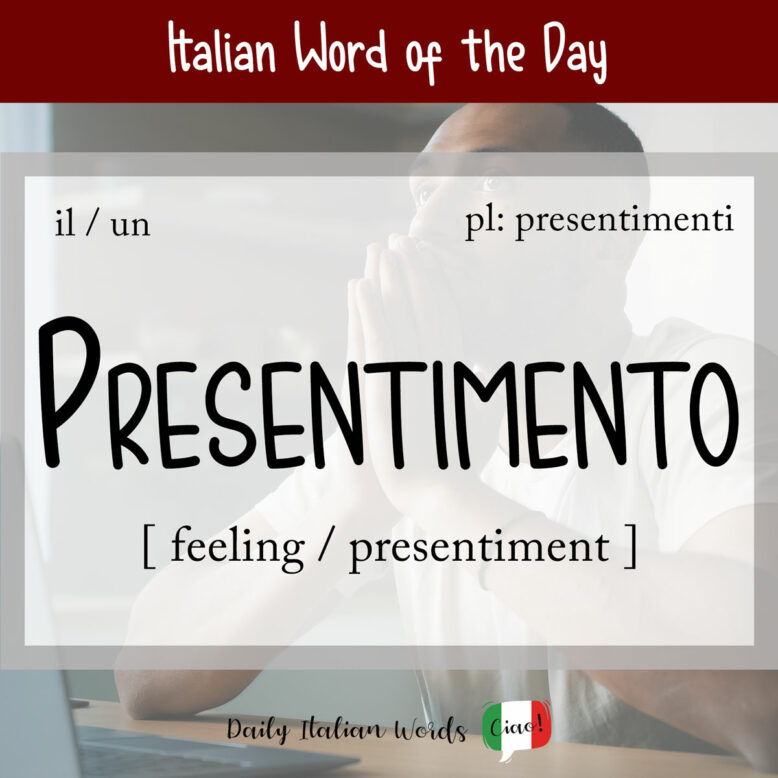Italian and English are full of cognates, but some are used more frequently in one language than in the other. This is certainly the case with the Italian word presentimento, which, unlike the English equivalent presentiment, occupies a valuable place in the core lexicon of most Italians.

Presentimento, which can bedefined as an intuitive feeling about the future (especially one of foreboding), is a masculine noun derived from the French term pressentiment. It is related to the verb presentire (literally pre- meaning ‘before‘ and sentire meaning ‘to feel, to sense‘).
il presentimento
the presentiment
un presentimento
a presentiment
i presentimenti
the presentiments
dei presentimenti
(some) presentiments
Normally, presentimento is best translated as feeling in everyday English, although premonition and foreboding work too. In fact, two phrases in which it appears most often are avere un buon presentimento (to have a good feeling about something) and avere un brutto presentimento (to have a bad feeling about something).
Ho un brutto presentimento per la gara di domani.
I have a bad feeling about tomorrow’s race.
Ho un buon presentimento per il nuovo album di Eros Ramazotti.
I have a good feeling about Eros Ramazotti’s new album.
It may or may not be followed by the conjunction che (that) or preposition di (of). Note that after di, you must use the infinitive, whereas with che you can use the future, the subjunctive or the conditional.
Avevo il presentimento di non rivederlo mai più.
Avevo il presentimento che non lo avrei mai più rivisto.
I had a feeling that I would never see him again.

A common synonym for presentimento is sensazione (sensation), although it lacks the feeling of foreboding that the former embodies.
Heather Broster is a graduate with honours in linguistics from the University of Western Ontario. She is an aspiring polyglot, proficient in English and Italian, as well as Japanese, Welsh, and French to varying degrees of fluency. Originally from Toronto, Heather has resided in various countries, notably Italy for a period of six years. Her primary focus lies in the fields of language acquisition, education, and bilingual instruction.


